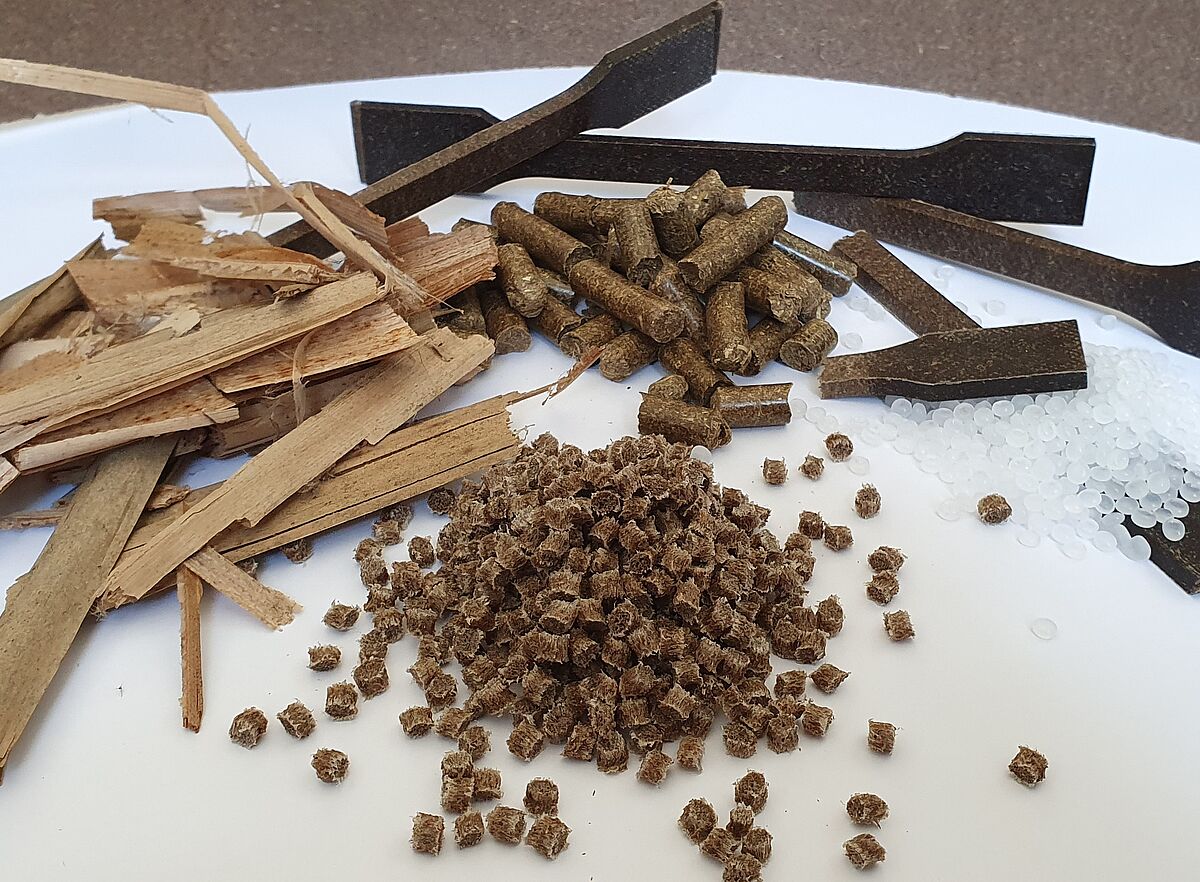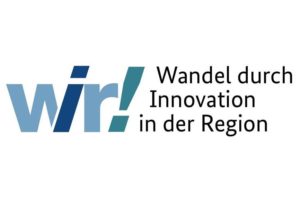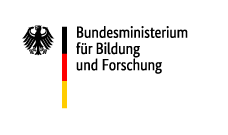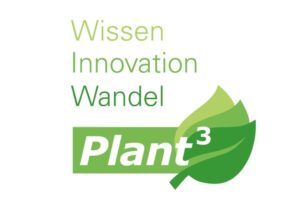WIR! - Plant³: Paludi product - bio-based plastic products from paludiculture

Project Backround
Paludiculture is the only way to manage peatlands in a climate and biodiversity friendly way. In order to make the transition from drainage-based to wetland management of peatlands as conflict-free as possible, new concepts and opportunities for added value need to be identified. Climate-neutral, renewable raw materials from peatlands can offer great potential for regional value chains. Combined with the greenhouse gas sink effect of intact peatlands, sustainable perspectives for peatland management can emerge.
An important driver for this development is research into possible substitutes for substances and products that are harmful to the climate and the environment. Many currently known products made from peatland plants can replace petroleum-based consumer goods. Building materials to insulate houses or peat substitute substrates for commercial horticulture are just two examples where particularly harmful materials can be replaced.
In cooperation with regional stakeholders, the Paludi product project is investigating the possibility of incorporating natural fibres from peatland plants into bioplastics production. Based on knowledge of the plants, questions are being asked about their suitability for processing into products that are as sustainable as possible. Is it possible to produce bio-based compostable films from bog plants (e.g. cattails and reeds)? Can fibres from acid grasses be used as the basis for bio-based plastic mouldings? How sustainable and environmentally friendly are these products? What are the opportunities offered by the unique physico-chemical properties of bog plants? In which areas of society are there really no alternatives to petroleum-based plastics, and what are the most sustainable approaches?
Project content
The project will investigate the physico-chemical properties of different peatland plants with a focus on bioplastics production. Chemical analyses will be carried out on biomass from different harvesting periods to identify or avoid pollutants or substances that negatively affect processing. It is also possible to optimise chemical substances that have a positive effect. In addition, the morphological and physical properties of the biomass will be tested. Different methods of fibre extraction will be tested and the fibres will be optically examined and characterised. The results will be published in the form of fact sheets.
The use of the fibres for the production of (compostable) bioplastics will be investigated from the point of view of environmental and climate compatibility. A life cycle analysis will be carried out for the product prototypes developed in the project. In addition, the raw material potential of the North-East region for the value chain covered by the project will be analysed. The possibility of setting up a processing plant will be discussed from a monetary and environmental point of view.
The natural fibres identified as suitable in the project will be used to develop a plastic compound that is as sustainable as possible. A wide range of options for compound production will be explored and the best process identified. The blends developed in the project will be tested for their suitability for large scale production.
The final step will be to test the developed compounds in practical processes. The prototypes will be tested with common methods and optimised for suitable production chains.
Aims of the project
The overall objectives of the Paludi-Product collaborative project are
1: To develop the raw material source "natural fibres from paludiculture" for the production of bioplastics.
2: To test the feasibility of two value chains with natural fibres from paludiculture in the field of bioplastics.
The overall project has four main work objectives
1 - The analysis of paludiculture biomass on a chemical and physical level.
2 - The development of a specially adapted plastic compound recipe
3 - The transfer of the compound recipe to large-scale plants
4 - To assess the CO2 footprint of the product prototypes.
Title:
WIR! - Plant³:
Paludi product - bio-based plastic products from paludiculture
Funded by:
Plant³ of the programme "WIR! - Change through Innovation in the Region" of the Federal Ministry of Education and Research (BMBF), Fkz: 03WIR2212A
Duration:
01.10.2022 to 30.09.2025
Project management at the University of Greifswald:
Overall project leader:
Prof. Dr. Volker Beckmann
Network coordination and processing:
Collaborating partners:
- University of Greifswald, Chair of Landscape Economics, Partner at the Greifswald Moor Centrum (Thematic areas of paludiculture, renewable resources and life cycle analysis)
- Institute for Polymer and Production Technologies e.V., Wismar; GERMAAT Polymer GmbH, Schwerin (Formulation development of plastic compounds)
- Saz - Schwerin Training and Further Education Centre e.V., Schwerin (Prototype production and industry expertise)
Funded by:



